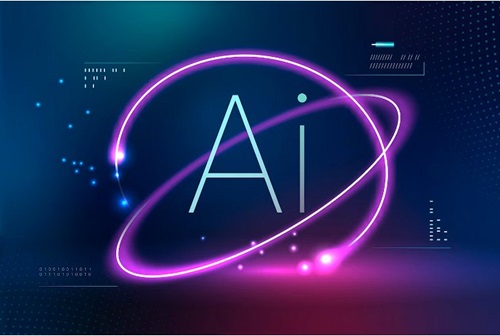What is AI? The Basics Explained Simply
What is AI, a most common question that comes to someone’s mind. Artificial Intelligence or AI, is a term that is frequently used nowadays, but what does it actually mean? Simply put, AI refers to machines or software that imitate human intelligence. Consider Siri or Google Assistant, they learn from interactions and improve over time. That’s AI at work.
AI is not just limited to voice assistants; it’s in almost everything now, from your Netflix recommendations to self-driving cars. The goal is to make tasks easier and faster for us humans by allowing machines to do things that usually require human brains, such as problem-solving, recognizing patterns, or even learning from past experiences.
The great thing about AI is that it’s designed to improve as it’s used more. It’s not static but learns from the data it’s fed. For example, if you regularly ask your voice assistant about the weather, it’ll start providing more accurate responses based on your habits. AI systems can analyze large amounts of data quickly and accurately, which makes them incredibly useful in many different fields.
Types of AI:
There are mainly two types of AI, Narrow AI and General AI
- Narrow AI – This type of AI is task-specific. It can perform a single job really well, such as recognizing faces in photos or suggesting what to buy on Amazon. Think of it as a tool that is really good at one thing but doesn’t have broader intelligence.
- General AI – This kind of AI, known as General AI, is currently only found in science fiction. General AI would be capable of understanding, learning, and applying intelligence to any task, similar to how humans do. Think of robots like C-3PO from Star Wars. These two types truly describe what is AI.
What is AI and why is it important?
AI is essential because it helps us automate processes, solve complex problems, and even predict outcomes. In business, AI can analyze large data sets to make decisions faster than any human could. In healthcare, it can predict patient outcomes, recommend treatments, and even assist in surgeries.
In simple terms, what is AI? AI is changing the way we live, work, and interact with the world. Imagine your car driving you to work while you focus on something else. AI makes that possible.

Benefits of AI
- Automation of Repetitive Tasks – Tired of doing the same thing over and over again? AI can help automate those tasks. For example, AI is used in manufacturing to streamline production and reduce errors.
- Better Decision Making – AI can analyze large amounts of data faster and more accurately than humans. This helps businesses make better decisions, whether it’s predicting customer behavior or identifying trends in the market.
- Personalized Experiences – Ever notice how your streaming service recommends shows you like? That’s AI working behind the scenes to give you a personalized experience. like data science to provide customer’s personalized experiences.
- Improved Customer Service – Chatbots powered by AI are now common on websites, helping customers with their queries instantly.
- Increased Productivity – With AI handling less exciting tasks, employees can focus on more creative and strategic work, which leads to better productivity.
- Safety and Efficiency – AI-powered systems in industries like aviation and healthcare increase safety by reducing the risk of human error.
Challenges of AI
With all these benefits, what is AI? Remember it’s not all roses. AI does come with its challenges.
- Job Displacement – Some fear that AI could take over jobs, especially in areas like manufacturing, driving, and even customer service.
- Ethical Issues – AI systems need tons of data to work. But how is that data being used? There are also concerns about AI systems making decisions that could impact people’s lives.
- Cost – Developing AI systems can be expensive, making it difficult for smaller businesses to adopt the technology.
How AI is Shaping the Future
AI isn’t just a trend, it’s the future. What is AI ? you will witness in the next few years, we can expect AI to become even more integrated into our lives. Self-driving cars, AI doctors, and robots assisting in everyday tasks are just the beginning. As AI continues to evolve, it will unlock new possibilities in industries like education, entertainment, and even space exploration.
Conclusion
AI is not some far-off, sci-fi concept anymore. It’s here, and it’s shaping our world every day. From making businesses more efficient to improving our daily lives, AI has immense potential. And while there are challenges to overcome, its benefits are clear. As we move forward, AI will likely become an even bigger part of our daily lives, helping us solve problems faster and smarter.
Frequently Asked Questions:
To tell in short, what is AI? It refers to technology that mimics human intelligence, like problem-solving, learning, and decision-making.
Yes, but it depends on how it’s implemented. Ethical use of AI and proper regulation are key to ensuring it’s safe.
AI learns from data. The more data it has, the better it gets at predicting outcomes or making decisions.
Narrow AI is designed for specific tasks (like voice assistants), while general AI, which doesn’t exist yet, would be capable of any intellectual task, just like a human and it provide the insight that what is AI.
AI could replace some repetitive jobs, but it also creates new opportunities in tech and data management fields.


